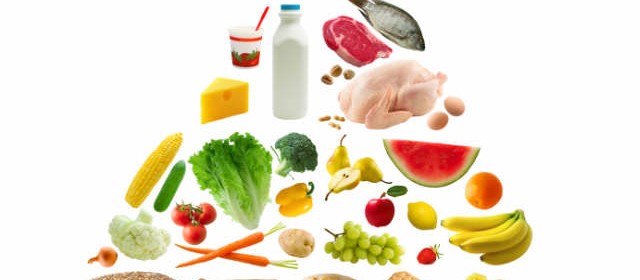Essential Nutrients for Your Child’s Development

The foundation of any person’s health starts with childhood: and one of the most significant elements in ensuring good health is a good diet. Eating right and in right portions from a young age is extremely important for the wellbeing, longevity and sustained development of an all round kind, of every individual. The building blocks to a good diet are nutrients, and are seven in number. Here is everything you need to help your children get the right quota of nutrients for their overall development.
Nutrient 1: Protein:
Proteins are valuable for the body as it assists in building the cells in the body, breaking food down to release energy and to help fight infections while also assisting in the transport of oxygen in the body. Children can derive great doses of proteins by consumption of lean meats, dairy, fish, eggs, nuts, beans and soya.
Nutrient 2: Carbohydrates
Carbohydrates are a very important source of energy, especially for children who are often occupied with lots of activity. There are two kinds of carbohydrates – refined and natural. Refined carbohydrates are bad and best avoided – so don’t ply your children with too much white rice, sugar and white bread. Instead, they should have more starches and fibres. Some of the food options you can incorporate for your children are brown rice, whole grain cereals and bread, potatoes, wheat-based pasta and even bananas.
Nutrient 3: Fats
While many believe that fats are bad, they really are not if they are taken in moderation. Fats are also a vital source of energy for children, but should be moderated in quantity as they are easily stored in their bodies and can cause obesity if unchecked. So as a measure, it is useful to note that fats comprise approximately 30 percent of your kid’s required dietary allowance. Some of the foods that contain healthy fats include whole milk dairy products, vegetable oils such as olive oil, coconut oil, soybean oil, and sunflower oil, meat, fish and nuts.
Nutrient 4: Calcium
Calcium is important for children as it helps build healthy bones and teeth and is thus vital for their health. Calcium is also an essential nutrient in nerve, muscle and heart function. Children should also get an equal amount of exercise for their bodies to synthesize and use Calcium. Foods rich in calcium include milk, yoghurt, cheese, cream, egg yolk, broccoli, dark and leafy greens, tofu and paneer.
Nutrient 5: Iron
Iron is also a very important nutrient for it helps in producing haemoglobin, which carries oxygen in the blood and transports it to the organs, and also myoglobin, which stores oxygen in the muscles. Iron is vital, but is found in traces, and is important for the formative health of children. To supply iron, the best resources are red meat, liver, poultry, spinach, iron-fortified cereals, oats, beans and nuts.
Nutrient 6: Fibre
Fibres are important to assist in comfortable bowel movement in children, and also in the prevention of heart diseases, cancer and lifestyle issues. Getting children to eat fibre can be difficult, so the key is to cook it for them in a way that will encourage them to eat it. Some sources of fibre include whole-grain cereals, fruits and vegetables, chickpeas, seeds, nuts, lentils and corn.
Nutrient 7: Folate
The final nutrient is Folate, which assists in healthy development and functioning of a child’s body cells. It is a form of Vitamin B and is necessary for the physical wellbeing of children. Folate rich foods are whole-grain cereals, lentils, chickpeas, dark and leafy vegetables and beans.
Picture Courtesy : dietsinreview.com
